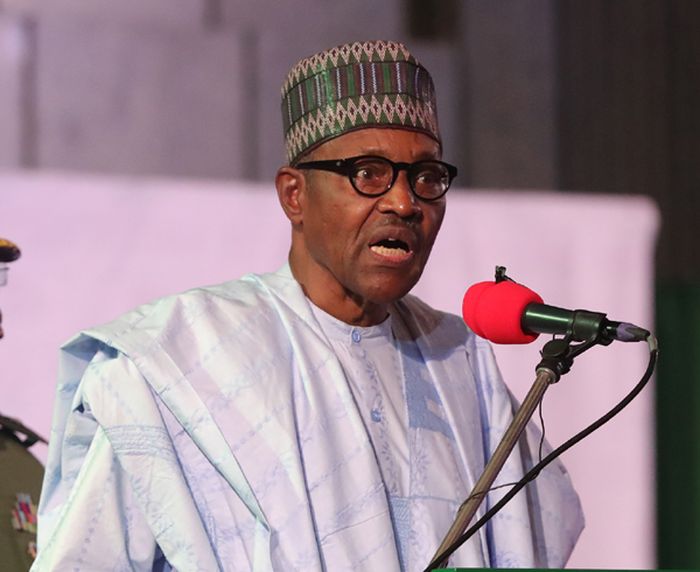Before the latest controversy on President Muhammadu Buhari’s rejection of the Electoral Act Bill amendment transmitted to him by the National Assembly, there were precedents showing that the President may have ‘some problems’ with electoral reforms.
On four occasions in 2018, the 8th Assembly led by then Senate President Bukola Saraki passed and transmitted the Electoral Act amendment bills to Buhari for assent and on each occasion, he declined assent.
- Electoral bill: How governors scuttled senators’ moves to override Buhari
- Buhari: Why I declined assent to Electoral Amendment Bill
The first was in February 2018, Buhari rejected the bill because of provisions that reordered the sequence of elections.
A second amendment passed by the National Assembly and transmitted to Buhari in June 2018 was not considered at all.
The President for the third time, in July 2018, declined assent to another version of the amendment transmitted to him by the lawmakers, citing concerns over increased cost of conducting elections, among others.
In December 2018, Buhari, for the fourth time, declined assent to the amendment, after the National Assembly had addressed all his concerns.
In a letter dated December 6, 2018, addressed to Saraki and then Speaker of the House of Representatives Yakubu Dogara, Buhari said he would not sign the electoral bill into law at a time the country was preparing for the 2019 elections saying doing so would cause confusion and lead to uncertainty.
The Civil Society Legislative Advocacy Centre (CISLAC) and Watching The Vote (WTV) project of YIAGA Africa, among others and individuals, mounted spirited campaigns to convince President Buhari to reverse his stance.
Back then, there was no love lost between the lawmakers with Saraki and Dogara’s leadership.
The lawmakers were ‘pummelled’ by a cross sections of Nigerians for refusing to disclosed the content of the amendments transmitted to the President for assent. The Presidency response, forced the lawmakers to ‘leak’ the content of the of the bill sent to President Buhari to the media in retaliation.
The amendment sent by the lawmakers to President Buhari for assent in August 2018 contained only 15 clauses as opposed to 41 clauses in the original version of the bill, leaving out 26 other clauses.
In the new version, amendment to Section 49, legalising the use of Smart Card Reader (SCR) or any other technological device for accreditation of voters was omitted.
Executive Director, CISLAC, Auwal Musa Rafsanjani; his Yiaga Africa counterpart, Samson Itodo; Center for Democracy and Development (CDD) Director, Idayat Hassan; and Executive Director, Peering Advocacy and Advancement Centre in Africa, Ezenwa Nwagwu, among others, mounted pressures on the President to rescind his decision.
They ‘hammered’ on Buhari’s comment of being a victim of electoral malfeasance and his promise to leave a legacy of electoral law that would deepen democracy and good governance through reforms.
Among other controversies on the bill were reordering of sequence of the 2019 elections, placing presidential poll last, instead of governorship and state assemblies, and also exclusion of use of card readers.
But the President was accused of frustrating passage of the bill because he did not want reform that can jeopardize his chances of getting a second term.
The President declined to signed the bill in 2018, incumbent Senate President Ahmad Lawan, then Senate Majority Leader, warned against stampeding President Buhari into signing the 2018 amendment.
This was the scenario when the President, again, rejected the 2021 amendment on the last day of expiration of the 30-day constitutional provision, but with the letter believed to have been backdated.
Constitutional lawyer and human rights activists, Mr. Femi Falana, said President’s reasons for rejecting the bill was misleading.
He said that having refusing to assent to the Electoral Amendment Bill in 2018 and now, President Buhari confirmed his administration will not allow INEC to conduct credible elections in 2023 and thereafter.
He also wondered who conjured the N500bn for the primaries to give the impression that it is an expensive venture, when INEC submitted a bill of N305bn for the entire 2023 general elections?

 Join Daily Trust WhatsApp Community For Quick Access To News and Happenings Around You.
Join Daily Trust WhatsApp Community For Quick Access To News and Happenings Around You.

